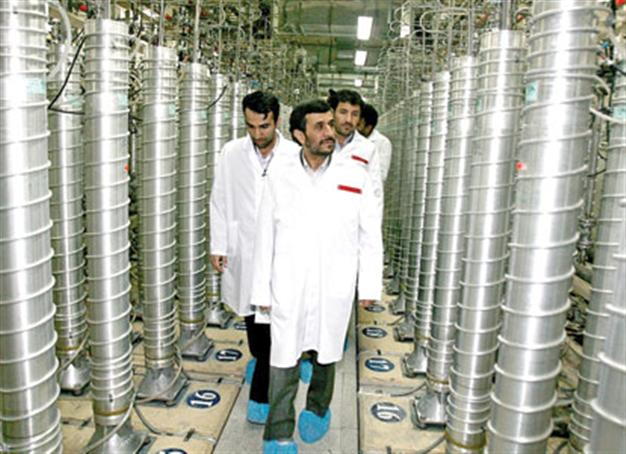South Korea may stop Iran petrochem imports
ISTANBUL

This photo shows Iranian President Mahmoud Ahmadinejad visiting the Natanz uranium enrichment facility. The pressure on Iran about its nuclear program is increasing. AFP photo
South Korea could ban Iranian petrochemical product imports following pressure from the United States to beef up sanctions against Tehran over its nuclear program, sources told Reuters. The news comes after France announced it will stop buying Iranian oil on a “national basis.”
The European Union agreed in principle on Tuesday to sanction some 200 Iranian people, companies and organisations and France mooted the idea of a Europe-wide ban on Iranian crude imports.
“We are cautiously considering an import ban on Iranian petrochemical products, and currently evaluating a possible impact of the ban,” one of the sources told Reuters.
Petrochemicals that could be affected include butadiene, paraxylene and other intermediates produced by processing naphtha, another source said, speaking on condition of anonymity.
South Korea imported $350 million in Iranian petrochemicals last year, while exporting $450 million of its petrochemicals to Iran. That would represent a small part of South Korea’s global trade in petrochemicals, which last year totalled $49 billion.
In September 2010, South Korea blacklisted 102 companies, including the Seoul branch of Iran’s Bank Mellat, and 24 individuals accused of facilitating Iran’s efforts to develop nuclear weapons.
On Thursday, Agence France-Presse reported that France will stop buying Iranian oil on a “national basis” as part of its campaign to raise pressure on Tehran over its contested nuclear program.
Foreign Ministry Spokesman Bernard Valero gave no details of the measure, but the U.S. Energy Information Agency estimates that France imports the equivalent of 49,000 barrels of Iranian crude per day, a tiny fraction of Iran’s exports.
French energy giant Total is still present in Iran, but only operates a joint venture with an Iranian lubricants firm, having halted its oil production and, in the middle of last year, stopped fuel sales there.
Iran, the world’s No.5 oil producer, exports the largest volumes of oil to China, India, South Korea and Italy, but it will be Turkey, South Africa and Sri Lanka that struggle the most if they lose Iranian supplies
















